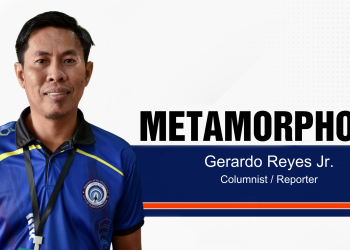Here’s an opinion that could get me canceled. The Sangguniang Kabataan should be abolished.
Not changed. Not reformed. Not rebranded with a new acronym. Abolished.
The SK was built with good intentions. It was supposed to be a training ground for leadership and a reminder that young people have a voice in shaping the country they will inherit. But good intentions are not enough. Somewhere along the way, the SK stopped being a platform for service and became a playground for power.
The recent uproar over the Manila SK’s trip to Thailand says it all. The trip was presented as a “mandated training” and approved on paper, but anyone with common sense could see what it looked like. While Filipino students skip meals to afford their tuition, SK officials were flying abroad to “learn” leadership through photo opportunities and hotel conferences. The optics were so tone-deaf that even the Department of the Interior and Local Government had to step in to investigate.
It is not the trip that disgusts me most. It is the justification. The insistence that the act was legitimate because it was allowed. Because there was a letter. Because the paperwork was in order. That kind of thinking is exactly how corruption begins. When people start believing that legality is the same as morality, every abuse of privilege starts to sound reasonable.
The SK was supposed to teach the youth how to lead. What it has taught them instead is how to imitate the same political theater their elders perform. They learn how to craft press statements, pose for ribbon-cutting photos, and use the word “transparency” while their projects are quietly under-documented. They learn that politics is not about purpose but about presentation. And once that illusion takes root, it grows fast.
Every election cycle, we watch the same things happen. Basketball tournaments disguised as youth empowerment. Clean-up drives that last a weekend and are never followed through. Seminars that end in souvenir shirts and hashtags. The SK keeps surviving because it keeps looking busy. But being busy is not the same as being useful.
I’ve known people who served in the SK Federation. I’ve seen what happens when they get a taste of power too early. They start out idealistic and humble, but somewhere between the honoraria and the networking, they begin to change. They become money-making magicians, turning budgets into personal projects and influence into currency. Some of them are still in office today, still holding titles, still pretending it’s about service. What the SK gave them was not leadership training. It was a head start in learning how power corrupts quietly. And how absolute power corrupts absolutely.
To abolish the SK is not to silence young people. It is to free them from the illusion that a title gives them power. It is to stop confusing participation with progress. The youth can still serve. They can organize reading programs, mental health campaigns, and climate initiatives without the need for government approval or barangay funding. In fact, they already do. Some of the most impactful movements in this country were led by young people who never waited for permission.
The SK has become a safety net for political dynasties, a waiting room for those who want to inherit their family’s influence. It has become a test run for entitlement, not accountability. And while it may have started as a noble idea, it now trains children to mimic the dysfunction that already exists at the top.
If this system keeps teaching our youth that power is something to protect instead of something to use, then we are not preparing leaders. We are preparing successors to corruption.
I do not say this out of cynicism. I say this out of hope. Because somewhere in this generation, there are young people who genuinely care. Those who volunteer without allowance, who organize clean-ups that never make it to Facebook, who refuse to be silenced by the noise of bureaucracy. Those are the ones who prove that youth participation is alive, just not inside the SK.
To every SK official reading this, I hope you pray for your choices. Pray for the kind of leader you are becoming. Pray that you do not mistake attention for impact. Pray that your name on a tarpaulin will never mean more to you than the people you swore to serve.
Because one day, this will all end. The banners will fade, the funds will run out, and the positions will pass to someone else. What will remain is not your title but your character. And if the Sangguniang Kabataan continues in this direction, all it will leave behind is a generation that learned how to speak like leaders but never learned how to lead.
Maybe the bravest thing we can do for the next generation is to stop pretending this institution still works. The youth deserve better than borrowed power. They deserve to start again, clean and uncoached, with hearts untrained in the art of excuses. Only then can they rebuild a kind of leadership that feels like service again.






















